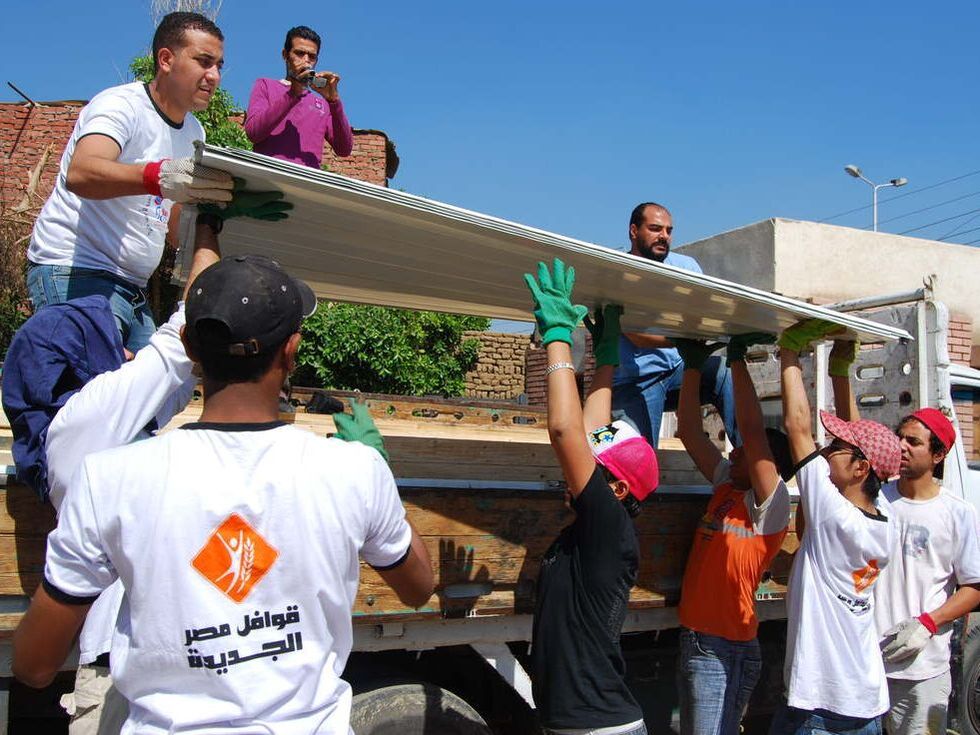|
|
|
The 21st century has witnessed a range of mass movements and street protests around the Arab world. In early 2011, an uprising founded on visions for a more just and free Egypt led to the overthrow of President Hosni Mubarak, while the following years and the election of Field Marshall Abdel Fattah al-Sisi proved that the military regime was far from defeated. Nevertheless, both opposition protests and state arrests continue to influence politics and everyday life in the country. For young people, political events are often formative for their images of what the future holds and what possible selves they imagine. The contemporary context of Egypt thus provides an opportunity to analytically explore the dynamics and intertwinement of personal hopes, utopian aspirations and post-revolutionary nostalgia and disappointment.
In my Identities article, ‘Experimenting with alternative futures in Cairo: young Muslim volunteers between god and the nation’, I examine how the personal hopes of young middle-class Egyptians develop into utopian aspirations for an alternative society, and eventually, how such aspirations are both strengthened and shattered in the aftermath of an uprising. Through ethnographic fieldwork among volunteers in Resala, Egypt’s largest Muslim youth NGO, from 2009 to 2015, I followed some of these young people from their first experiences with Muslim volunteer work through their excitement of the 2011 uprising. and finally to post-revolutionary times where they again renegotiate their orientations towards the future.
My analysis provides insights into the important and ongoing debate on the relationship between religious dedication, civic engagement and political subjectivity. As middle-class youth who came of age in the 2000s, for the volunteers, Resala laid the groundwork for a concrete utopia of a more unified and solidary Egypt, while also opening possibilities of becoming ethical, pious subjects. From their middle-class position and through their regular encounters with poor fellow citizens, they gradually came to envisage the national collective as a redistributive system, where they would take on the role as liaisons between the rich seeking to purify their wealth through charity and the poor seeking assistance.
With the 2011 uprising, a political space to create a better future materialised. Yet a moment that initially provided hope, recognition and inclusion for them soon turned out to be the source of their frustration, despair and marginalisation. Again, they had to renegotiate their orientations towards the future. Some continued to hope for the possibility of a better society, which – depending on how you choose to read negotiation of hope and utopia after Tahrir – reflects either survival of the revolutionary spirit or a ‘stuckedness’ in a moment of promises long passed. Others managed somehow to continue civic engagement under the limitations of military rule, but focussed mainly on personal strivings – spiritual and economic – to live a good life. My article demonstrates the potential of longer-term societal change in contexts like the Egyptian through a dialectic between the local emergence of new narratives of alternative futures, and people’s active efforts in experimenting with and negotiating these ideas by transforming themselves and others into what they see as better and more ethical citizens. At the same time, it points to the importance of age, life stage and the social and political spaces needed to shift people’s focus from personal aspirations and family security to shared utopias. The inclusive space of Resala survived as one important option for such engagement.
Blog post by Sara Lei Sparre, Aarhus University, Denmark
Read the full article: Sparre, Sara Lei. Experimenting with alternative futures in Cairo: young Muslim volunteers between god and the nation. Identities: Global Studies in Culture and Power. DOI: 10.1080/1070289X.2017.1400276
0 Comments
Your comment will be posted after it is approved.
Leave a Reply. |
|
Explore Identities at tandfonline.com/GIDE |
|
The views and opinions expressed on The Identities Blog are solely those of the original blog post authors, and not of the journal, Taylor & Francis Group or the University of Glasgow.

